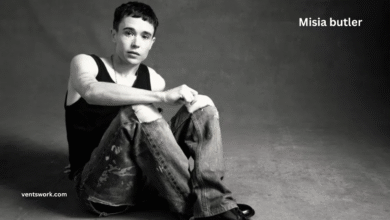Sigma Boy Lyrics Uncovered: Meaning, Origins & Cultural Impact

Sigma boy lyricss, the term “Sigma Boy” has evolved from an obscure internet phrase to a viral cultural motif. With the growing popularity of archetypes like “Sigma males,” music artists and internet influencers began incorporating the theme into their content. Among the many results of this shift is the emergence of the “Sigma Boy” song—a track that encapsulates the essence of the lone wolf persona many young individuals identify with today. But what lies beneath the surface of these lyrics?
From viral TikToks to introspective YouTube edits, Sigma Boy lyrics resonate with those who value independence, emotional resilience, and self-determination. While some listeners treat the song as a meme, others adopt it as a personal anthem. The lyrics, style, and tone of the track provide fascinating insight into modern masculinity, especially how Gen Z and Millennials interpret strength and solitude.
This article breaks down the origins of the Sigma Boy trend, analyzes the song’s lyrics in depth, and explores its broader impact on internet culture. Whether you’re a curious listener or a cultural analyst, this deep dive will reveal how a simple song became a symbol of a movement.
Origins of the Sigma Boy Trend
What Does “Sigma Male” or “Sigma Boy” Mean?
The “Sigma male” is a social archetype that stands apart from traditional Alpha/Beta hierarchies. Coined within manosphere and internet subcultures, Sigma males are seen as lone wolves who succeed outside societal norms. Unlike Alphas who lead through dominance or Betas who follow, Sigmas operate independently, often shunning validation and favoring personal growth.
As this archetype gained traction, particularly on platforms like Reddit, 4chan, and YouTube, it evolved into the more youthful and trendy term “Sigma Boy.” This rebranding made the concept more relatable to younger audiences, often blending it with humor, irony, or hyper-masculine aesthetics. The Sigma Boy term took root in TikTok culture, where users began using it to describe themselves or others who displayed independence, emotional control, or non-conformity.
When Did the Sigma Boy Concept Emerge?
The Sigma Boy concept began gaining mainstream attention in the early 2020s, but its foundation lies in internet ideologies that date back at least a decade. YouTube motivational videos featuring dark instrumentals, stoic quotes, and scenes from films like “Drive” or “John Wick” cultivated the Sigma aesthetic. Soon, TikTok creators adapted the idea, combining catchy music with empowering voiceovers or lyrics.
The rise of short-form video content significantly accelerated the spread. Hashtags like #SigmaMale, #SigmaGrindset, and eventually #SigmaBoy flooded the For You pages, amassing millions of views. Influencers and meme pages capitalized on the virality, often crafting parody or serious content around the Sigma Boy identity. Music was the natural next step.
Birth of the “Sigma Boy” Song
The Sigma Boy song is often attributed to independent creators who used platforms like TikTok, SoundCloud, and YouTube to publish content. Many of these songs incorporate elements of trap, drill, or lo-fi genres, emphasizing lyrics about emotional resilience, ambition, and detachment from societal norms.
While there isn’t one definitive “Sigma Boy” song, a few viral tracks have come to symbolize the movement. These tracks frequently feature repetitive, mantra-like lyrics and minimalistic beats that appeal to fans of stoic and self-improvement content. The widespread use of such songs in motivational edits and aesthetic videos has transformed them into unofficial anthems for the modern Sigma archetype.
Deep Dive Into Sigma Boy Lyrics

Full Lyrics Breakdown (Verse-by-Verse)
Though each Sigma Boy song varies, common themes include solitude, power, discipline, and emotional detachment. A typical verse might go:
“I walk alone, don’t need a pack / I got my mind, never lookin’ back.”
Lines like these evoke a sense of individualism and forward momentum. They contrast with mainstream pop music’s emphasis on relationships and social validation. Instead, Sigma Boy lyrics speak to those navigating life solo, armed with a strong sense of purpose.
Another example:
“No time for love, I’m on the grind / Chasin’ goals, not wastin’ time.”
This speaks to the “grindset” mentality—a portmanteau of “grind” and “mindset”—that encourages personal development and hustle culture. These verses, while simple, pack significant emotional and cultural weight, particularly among those who view emotions as distractions or weaknesses.
Themes Explored in the Song
One of the strongest themes is independence. Sigma Boy lyrics often romanticize the idea of solitude, framing it as strength rather than loneliness. There’s a distinct rejection of societal expectations, especially regarding relationships, social climbing, or dependence on others for validation.
Another prevalent theme is emotional control. Rather than reacting to life with passion or vulnerability, Sigma Boys remain calculated, calm, and focused. The stoicism portrayed in the lyrics appeals to those who feel overwhelmed by emotional complexity or interpersonal drama.
The lyrics also touch on power, not in the domineering Alpha sense, but as self-mastery. These songs preach control over one’s environment, finances, body, and emotions—a comprehensive picture of masculine autonomy.
Cultural and Social Impact
The Sigma Identity in Youth Culture
For many young men, especially Gen Z, the Sigma archetype feels like a liberating alternative to traditional masculinity. Rather than conforming to the Alpha model of loud, aggressive leadership, the Sigma identity allows for quiet strength and introspective success. Sigma Boy lyrics have become a medium for expressing these evolving definitions of masculinity.
The song, whether viewed ironically or sincerely, taps into a collective yearning for authenticity and inner power. Many fans don’t take the lyrics literally but appreciate the underlying message of resilience and personal boundaries. As traditional gender roles blur and shift, the Sigma Boy aesthetic provides a grounding identity amid cultural chaos.
Memes, Reels, and Reaction Videos
Sigma Boy lyrics have become a mainstay of meme culture. Instagram reels, TikTok edits, and YouTube shorts often overlay these tracks on visuals of lone characters from anime, cinema, or even real-life hustlers. The music’s minimalism makes it ideal for motivational content or satirical skits.
Reaction videos also abound. YouTubers often analyze the lyrics, either mocking their exaggerated stoicism or praising their empowering message. The meme-ification of Sigma Boy has expanded its reach beyond hardcore followers to casual users who simply enjoy the aesthetic or find humor in its seriousness.
Backlash and Criticism
Despite its popularity, Sigma Boy culture has faced criticism. Some argue it promotes emotional suppression and unhealthy detachment. Critics point out that glorifying isolation can have mental health consequences, especially among young men already struggling with loneliness.
Feminist scholars and psychologists often critique the Sigma archetype as a rebranding of toxic masculinity under a new label. The emphasis on dominance, even if internalized, can perpetuate unrealistic standards. However, defenders argue that the message is more about self-reliance than rejection of vulnerability.
Related Music and Movements
Other Songs Inspired by the Sigma Archetype
The Sigma Boy song isn’t alone. Dozens of tracks now populate the genre, often under playlists labeled “Sigma Vibes” or “Alpha Energy.” These songs follow similar lyrical structures and themes, including isolation, grind, and personal power. Artists like Sadfriendd, Playboi Carti, and even lo-fi beat producers have contributed to the trend.
From Red Pill to Rap: Genre Influence
Much of the Sigma Boy movement borrows from Red Pill ideologies—an online subculture that promotes male self-improvement. Though controversial, this blend of ideology and music has created a niche sub-genre that exists somewhere between trap, motivational rap, and darkwave.
Public Reception & Chart Success
While not all Sigma Boy tracks reach Billboard charts, many have gone viral. TikTok and Spotify Wrapped stats show impressive engagement, especially among male listeners aged 16-25. Some songs have crossed over into mainstream playlists and even garnered celebrity endorsements, reflecting the trend’s growing impact.
Conclusion
The rise of Sigma Boy lyrics is more than a fleeting trend—it’s a window into a cultural shift. As young people redefine masculinity and identity, music becomes a powerful tool for expression. These songs encapsulate the values of self-determination, solitude, and emotional mastery that resonate deeply in a world saturated with noise.
While the movement has its critics, there’s no denying its cultural imprint. Sigma Boy lyrics offer both a critique and celebration of modern manhood, set to a beat that demands attention. Whether you’re nodding along seriously or chuckling at the memes, one thing is clear: the Sigma wave is here to stay.
Frequently Asked Questions (FAQs)
Q1: Who created the Sigma Boy song?
A: Multiple independent creators have produced songs under the “Sigma Boy” theme, mostly through TikTok and YouTube.
Q2: What are the most iconic lines from the Sigma Boy lyrics?
A: Lines like “I walk alone, don’t need a pack” and “No time for love, I’m on the grind” are particularly popular.
Q3: Is the Sigma Boy song meant to be serious or satirical?
A: It depends on the creator. Some songs are earnest, while others lean into satire or parody.
Q4: Why do Sigma Boy lyrics resonate with Gen Z and Millennials?
A: They reflect themes of independence, emotional control, and resistance to social norms—values many young people find empowering.
Q5: Where can I listen to the Sigma Boy track?
A: Popular platforms include TikTok, YouTube, SoundCloud, and Spotify.
Q6: Is there a female version or response to Sigma Boy?
A: While less common, some creators have responded with “Sigma Girl” or “Alpha Female” anthems.
Q7: What’s the difference between Sigma Boy and Alpha Male songs?
A: Alpha songs focus on dominance over others, while Sigma songs highlight dominance over oneself.
Q8: Are Sigma Boy lyrics considered controversial?
A: Yes, some critics argue they promote unhealthy masculinity or emotional repression.
You May Also Read: https://ventswork.com/innovation-news-dualmedia/


